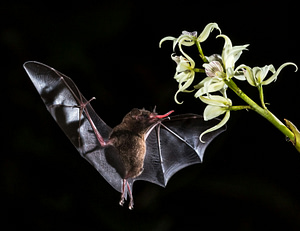On September 15 millions of volunteers in 150 countries will join forces for World Cleanup Day, but on the Caribbean island of Aruba the Metabolic Foundation is doing more than just tidying up plastic waste – we’re helping local residents transform it into something useful.
The Plastic Beach Party recycling collective, which includes Metabolic Foundation project coordinator Christie Mettes and research coordinator Tony Sevold, runs a small-scale plastic recycling facility for the island. Born out of open-source technology and an online and street-level crowdfunding campaign, the facility enables local designers to clean, prepare, cut, shred, melt, and mold old plastic into new products like tiles, key chains, and even Halloween costumes.
The Plastic Beach Party team already offer a recycling service for Divi Resorts, two offices, around 20 households and the University of Aruba, and in recent months have been building a giant new 3D printer and Shapeoko XXL plastic press to expand the range of uses plastic waste can be put to. The first test for these new machines will be to produce four park benches made out of recycled plastic to be installed at Linear Park in Oranjestad, in a €3800 project for the Aruban Ministry for Regional Planning, Infrastructure and Environment.
According to Mettes, the key goal of the project is to raise awareness about recycling on a tiny 179km² island where the shortcomings of landfill as a long term solution are easier to notice than in countries with more space to hide waste out of sight, or that can afford to ship plastic overseas. “I guess the most important thing to put out there is Aruba did not have a recycling facility at all, and waste management had been basically a dump site,” she said. “The dump is in a place called Parkietenbos, which in Dutch means Parakeet forest, it catches fire sometimes and has an open border to the ocean, and it’s in the middle of a mangrove forest near a lot of coral reef islands. So if it wasn’t a dump, it would probably be a protected natural area.”
With their operation already featuring a plastic shredder, compression oven, injection mold and plastic extruder together capable of recycling up to 200kg of plastic waste a month, Mettes and Sevold hope adding the 3D printer and Shapeoko XXL will further advance their goal to create a financially sustainable model to recycle plastic into locally relevant re-usable products. One big challenge is sourcing the right specialized parts in a relatively remote location, but once the basics were in place for the 3D printer, they had a novel solution at hand: use the machine itself to print whatever extra parts they wanted, including for the plastic press.

Although the volunteer-run recycling facility charges for its services, Mettes said they make it accessible in a variety of ways. “We offer a discount for people the more they do, so if they bring the plastic in there’s a discount, and if they wash the plastic there’s another,” she said. “Students can actually also pay with time at the University of Aruba, and it is also open to all product designers. So anybody who has an idea of something they want to make, they get free access to the tools and our plastic. It’s about creating an economy.”
Local designers who have used their facilities include an artist who created free form shapes for an exhibition, another who made signage for a secondhand store, while other creations include recycling bins, lampshades, trophies and – in one of the more unusual jobs – a goat skull Halloween mask. “The artist behind the mask actually developed this whole new system, by making the mold out of cardboard and then laying the plastic onto that,” Mettes said. “We hadn’t ever done that before.”
Mettes and Sevold will soon be unveiling a range of other projects to complement their plastic recycling, including some innovative coral reef monitoring plans involving aerial drones and AI analysis, and a Mobile Maker Space that will tour the island engaging schools with 3D printing, robotics, the Internet of Things and coding. Over September 22-23 they will be heading to the World Maker Faire in New York to show off their latest innovations.
The ethos of their overall effort is grounded in open-source design, with much of the equipment for the plastic recycling sourced from Precious Plastic, who offer open source machines, tools and infrastructures to fight plastic pollution. As they tinker and refine their 3D printer and plastic press solution, Mettes and Sevold want to share what they end up doing online for free on GitHub, so others can emulate their work.
According to Sevold: “We think it’s important people appreciate plastic isn’t just a problem in Aruba. It’s simply that because we’re on an island, it’s so much more clear that this stuff doesn’t just go away.”
If you’d like to find out more about the Plastic Beach Party and how you can start your own plastic recycling program, or if you just want to donate to support the growth of our initiative, please head here.
For more on the work of Metabolic Foundation, go here.






